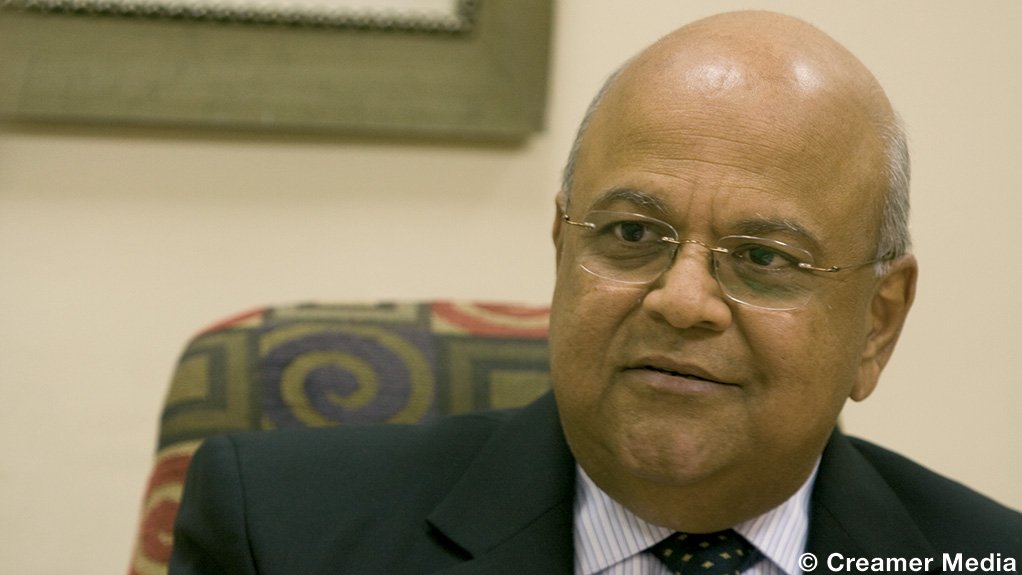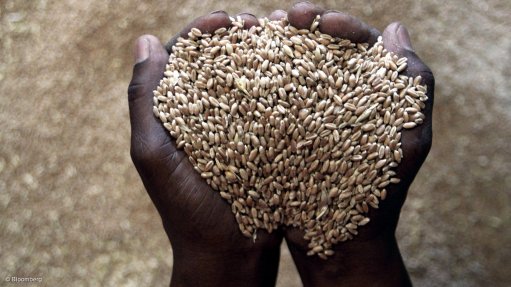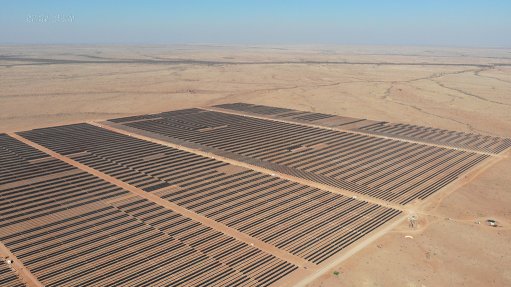S Africa not heading into a recession, Gordhan assures
South Africa was not slipping into a recession despite taking substantial hits in a storm of global economic challenges, Finance Minister Pravin Gordhan assured the public on Thursday, noting that government would implement new, stronger measures to build the nation’s resilience and ensure stability in a turbulent global environment.
Paltry economic growth of just above 1% was keeping the economy intact for now; however, the economy was not growing fast – or inclusively – enough, with the targeted 5% growth required to rapidly “change the [economic] picture”.
“As government, we are not sitting back; we are working behind the scenes to take the economy in a different direction,” he said, adding that there was a need to acknowledge the volatile landscape of a world in a “terrible” economic space that would likely not be resolved in the short term.
Gordhan planned to unveil Cabinet-endorsed measures to ensure a sustainable fiscal path that would stabilise South Africa’s economy, taking into account the weakened outlook for the global economy and its domestic consequences, during the National Budget on February 24.
While details could not be divulged ahead of the budget and the February 11 State of the Nation Address, he pointed out that South Africa needed to tailor its expenditure and revenue decisions in line with circumstances.
“Depressed trade volumes and turbulence in global capital markets underscore the need for nations to build resilience and act cautiously in the period ahead,” Minister in the Presidency for Planning, Monitoring and Evaluation Jeff Radebe said following a special Cabinet meeting this week on the state of the economy and budget-related matters.
“The global outlook has deteriorated in recent months. Slower global growth reflects, in particular, weaker performance and higher risks in several important developing countries, including China.”
Through National Development Plan-aligned interventions, government planned to engage business and organised labour to deliberate what was required to “stabilise the economy, build confidence, raise the level of investment and return South Africa to a path of inclusive economic growth”, he said.
The rand had been particularly hard-hit in recent weeks, a trend that the Ministers assured was not the result of a single individual but rather a wider combination of factors at play, including China’s significant slow-down.
The comments emerged after media reports and statements placed the blame for the plunging currency squarely on the shoulders of President Jacob Zuma – a view triggered by the surprise shuffling of the finance ministry leadership late last year and the subsequent 18% depreciation of the rand during the last few weeks of December.
The currency further weakened since the start of the new year, peaking at a record R17.995 to the dollar on Monday, before steadying to around R16.585 to the dollar by Thursday.
However, Radebe said that, while weaker growth in South Africa’s major trading partners meant subdued demand for South African products abroad, the depreciation of the rand over the last few years offered “much better prospects” for export growth and, combined with a lower global oil price, had helped to relieve pressure on the current account.
“In this difficult global context, in which all economies face difficult challenges, Cabinet reaffirmed the need for government to intervene strategically and more decisively to restore the momentum of economic growth,” he noted.
SOUTH AFRICAN AIRWAYS
Meanwhile, Gordhan said troubled national airliner South African Airways (SAA) still had space to borrow after Citibank’s withdrawal of its R250-million loan facility.
The State-owned company still had around R2-billion of its R14-billion in State guarantees available as government worked rapidly to stabilise and eliminate the cash-strapped parastatal’s reliance on the fiscus.
“SAA must not be a liability on the State. It must learn to stand on its own two feet,” he said, pointing out that much work had been completed to further the National Treasury’s turnaround plan, including swapping the purchase of ten A320 aircraft for a lease of five A330-300 aircraft from Airbus.
However, a lot more work was still ahead to ensure SAA became a profitable, dividend paying entity.
Comments
Press Office
Announcements
What's On
Subscribe to improve your user experience...
Option 1 (equivalent of R125 a month):
Receive a weekly copy of Creamer Media's Engineering News & Mining Weekly magazine
(print copy for those in South Africa and e-magazine for those outside of South Africa)
Receive daily email newsletters
Access to full search results
Access archive of magazine back copies
Access to Projects in Progress
Access to ONE Research Report of your choice in PDF format
Option 2 (equivalent of R375 a month):
All benefits from Option 1
PLUS
Access to Creamer Media's Research Channel Africa for ALL Research Reports, in PDF format, on various industrial and mining sectors
including Electricity; Water; Energy Transition; Hydrogen; Roads, Rail and Ports; Coal; Gold; Platinum; Battery Metals; etc.
Already a subscriber?
Forgotten your password?
Receive weekly copy of Creamer Media's Engineering News & Mining Weekly magazine (print copy for those in South Africa and e-magazine for those outside of South Africa)
➕
Recieve daily email newsletters
➕
Access to full search results
➕
Access archive of magazine back copies
➕
Access to Projects in Progress
➕
Access to ONE Research Report of your choice in PDF format
RESEARCH CHANNEL AFRICA
R4500 (equivalent of R375 a month)
SUBSCRIBEAll benefits from Option 1
➕
Access to Creamer Media's Research Channel Africa for ALL Research Reports on various industrial and mining sectors, in PDF format, including on:
Electricity
➕
Water
➕
Energy Transition
➕
Hydrogen
➕
Roads, Rail and Ports
➕
Coal
➕
Gold
➕
Platinum
➕
Battery Metals
➕
etc.
Receive all benefits from Option 1 or Option 2 delivered to numerous people at your company
➕
Multiple User names and Passwords for simultaneous log-ins
➕
Intranet integration access to all in your organisation





















